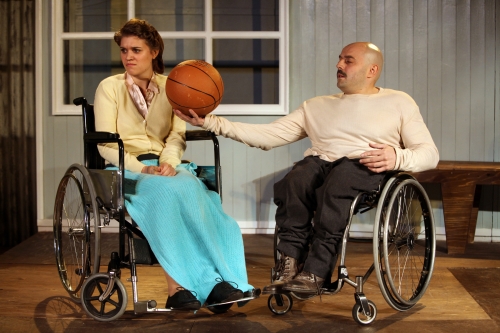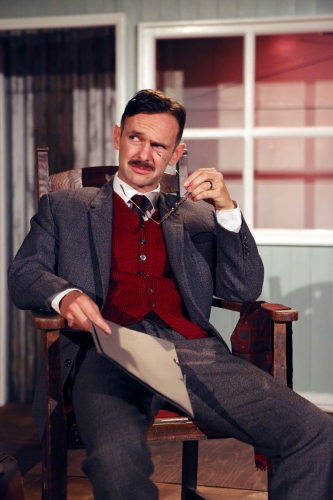 Loading... Please wait...
Loading... Please wait...- Username: Guest ¦
- My Account ¦
- Order Status ¦
- View Cart ¦
Categories
- Home
- Plays
- Full Length
- Drama
- Drama (N-Z)
- The Incredible Doctor Guttmann
The Incredible Doctor Guttmann
|
||||||||||||||||||||
|
||||||||||||||||||||
|
||||||||||||||||||||
Synopsis
Conventional medical opinion at the time together with the general attitude towards people with long-term paralysis, had hardly changed for centuries, and patients with spinal and similar incapacitating injuries were often considered to be untreatable and left to vegetate in a hospital bed until they died, uncomfortable, in pain, and ignored. Basic clinical and nursing activities that are common today, such as prescribing penicillin or moving patients to prevent pressure sores, were rarely carried out at the time. The play focusses on how, in his early life during WW1 Dr Guttmann became aware during his training as a medical orderly, of the barbarity that surrounded the ‘battlefield’ treatment of badly injured people, and he gives chilling accounts of his later experiences in Nazi Germany, recalling how he tried to save patients during the infamous Kristallnacht. On his arrival in Britain, Dr Guttmann is employed at the Army’s Stoke Mandeville medical unit, and immediately starts to his pioneering work to improve the treatment of badly injured servicemen and others admitted there with similar injuries. Strong characters driven by a desire to change lives often neglect their own relationships, and, fortunately for Dr Guttmann, his wife Else makes all the allowances and provides all the support necessary in their family life for him to concentrate on his work, in which he is in parts manipulative, charming, vulnerable, and brilliant. In the play he is ably supported by Sister Janet Maynard, a stern yet soft-hearted ward nurse who not only looks after Henry Collier, a badly injured bomb disposal officer and Florence Du Pre, a thrown horse rider, but provides the doctor with disciplined nursing arrangements that complement his views. 
The two patients, Henry (a fun-loving, optimistic patient and athlete who simply wants an ordinary ‘boring’ life) and Florence (who has great difficulty in accepting that her previous horse-riding, normal life is over) form an uneasy relationship at first, but through the continuous encouragement of Dr Guttmann and ‘Q’ the resident army Quartermaster, they become friends, sharing a common adversary. In the final scene Henry and Florence take part in the first, and what are now called, the Paralympic Games. It is Dr Guttmann’s triumph – he can show the world that while paraplegic people no longer face a ‘death sentence’, leading fulfilled and active lives. The Paralympic Games have grown in popularity since the 2008 Beijing and 2012 London events and stand testament to the outstanding achievements of the incredible Dr Guttman who was knighted in 1966 and died in 1980. |
||||||||||||||||||||
Characters
|
||||||||||||||||||||
|
||||||||||||||||||||






 Doctor Guttmann arrived from Germany at the beginning of WW2 and his consequent unconventional approach to patients with spinal injuries encouraged them to rebuild their lives, participate in activities, and eventually form the first Paralympic team.
Doctor Guttmann arrived from Germany at the beginning of WW2 and his consequent unconventional approach to patients with spinal injuries encouraged them to rebuild their lives, participate in activities, and eventually form the first Paralympic team.